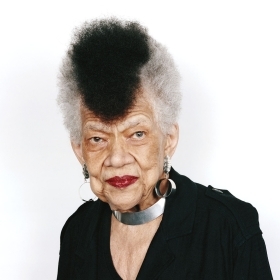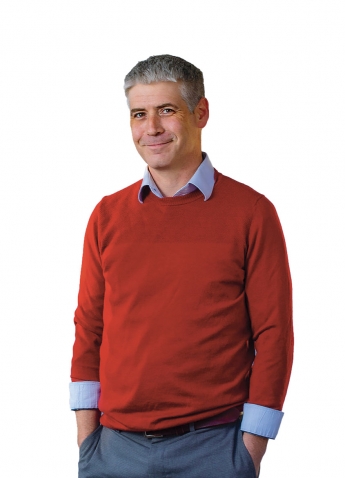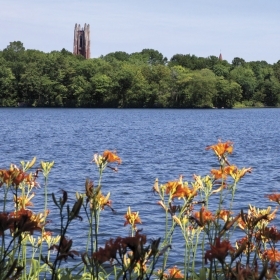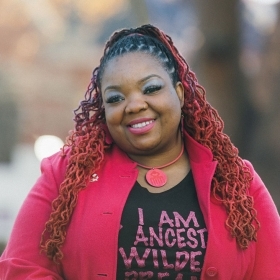Photo by Lisa Abitbol
Coursework doesn’t generally go directly to the boardroom—but that was exactly the goal of ECON 199, Casey Rothschild’s Fossil Fuel Divestment class last fall.
Students, under the guidance of Rothschild, Hess Professor of Economics, created an actionable proposal for the Wellesley College Board of Trustees as it considers withdrawing endowment investments from fossil fuel companies.
The board, encouraged by student activists, has considered divestment for years. Student groups have asked the College to freeze any new directly held investments in fossil fuels and within two years divest all direct holdings in the 200 largest publicly traded fossil fuel companies.
Climate scientists agree that over the last century, the burning of fossil fuels has increased carbon in the atmosphere, accelerating the warming of the planet and other consequences of climate change. “Our Wellesley degrees will be worthless in a world devastated by climate change,” the student group Renew Wellesley wrote in the Wellesley News in November 2019.
But the move would be costly and complicated for the College, and would barely dent a multi-trillion dollar industry. According to the College, on June 30, 2020, the end of the last fiscal year, 3.7 percent of the nearly $2.3 billion endowment portfolio is exposed to fossil fuels.
Still, students say, divesting from fossil fuels would align Wellesley more closely with its sustainability values and make it a leader among higher education institutions in confronting climate change.
Class member Cricket Liebermann ’23 says Wellesley can’t make progress on its environmental goals “if our endowment is still contributing to the fossil fuel industries and the perpetuation of climate change. We can’t move forward without changing that.” And, she says, students need to be a part of that—“not just by saying we want you to divest, but contributing to that action.”
Rothschild is a public finance theorist, focused on the role the public sector plays in the economy with a particular interest in the optimal design of income-tax systems and the role the government plays in regulating private insurance markets. Though divestment is not his economic area of focus, he found himself as an intermediary as student activism grew on campus last year. He understood the students’ perspective, and also where Wellesley’s senior leadership and investment office were coming from. For one, he knows the College’s financial picture inside and out. He chaired the Budget Advisory Committee for three years—a group of faculty and administrators who review and make recommendations about the annual budget.
Rothschild, who now sits on the Board of Trustees’ Investment Committee, says he sees his role as helping his students accomplish something they were already working toward.
He acts as a facilitator—helping students look at the issue from different perspectives, navigate political challenges to becoming an effective partner for Wellesley, and reach their goal of moving the board toward divestment.
“You can hold that belief that the trustees should be doing this, full stop. It’s still the case that those costs are real, and they matter to the trustees. Figuring out how to manage them is an important thing to learn, too,” Rothschild says.
Through Rothschild’s course, students held town halls with their peers to discuss the costs and benefits of divestment, including what sacrifices students would be willing to make to offset some of the expense. The course is also grounded in key economic concepts like opportunity costs, marginal analysis, and investment basics like diversification and present value.
In a proposal presented to the Investment Committee in December, students suggested four key areas that would result in cost and/or carbon savings: reducing the number of College-owned buses, limiting the use of mini-fridges in student rooms, implementing tiered fees for parking depending on the fuel efficiency of cars, and reducing red meat consumption in dining halls. The committee praised the students for developing “actionable ideas.” The class plans to hold a lab for trustees in February to share what they’ve learned.
Karina Zimmerman ’23 studied how schools like Smith and Middlebury have handled divestment. She says beyond the economics and environmental studies lessons, she’s also learned a lot about effective activism. “It’s a lot of work, takes a lot of time, takes a lot of research,” she says. And, of course, it takes partnership—among students and with the College. “If one person was stuck doing this on her own, it would be impossible. It takes a community of people really dedicated to this issue, to gain support for this issue, even when the work gets hard.”








We ask that those who engage in Wellesley magazine's online community act with honesty, integrity, and respect. (Remember the honor code, alums?) We reserve the right to remove comments by impersonators or comments that are not civil and relevant to the subject at hand. By posting here, you are permitting Wellesley magazine to edit and republish your comment in all media. Please remember that all posts are public.